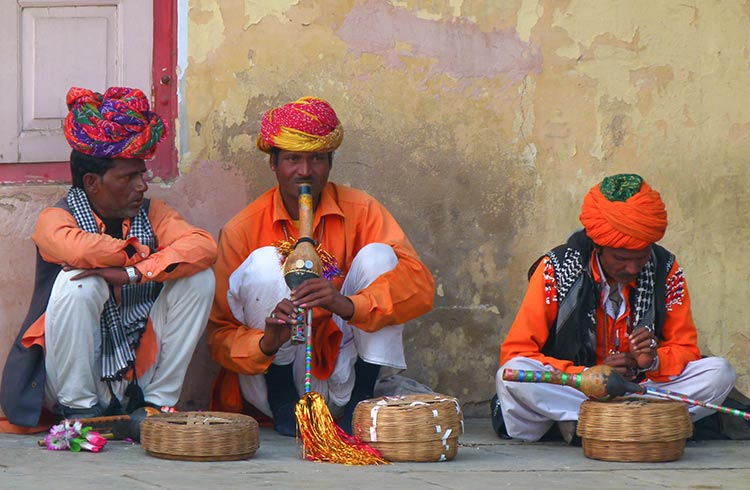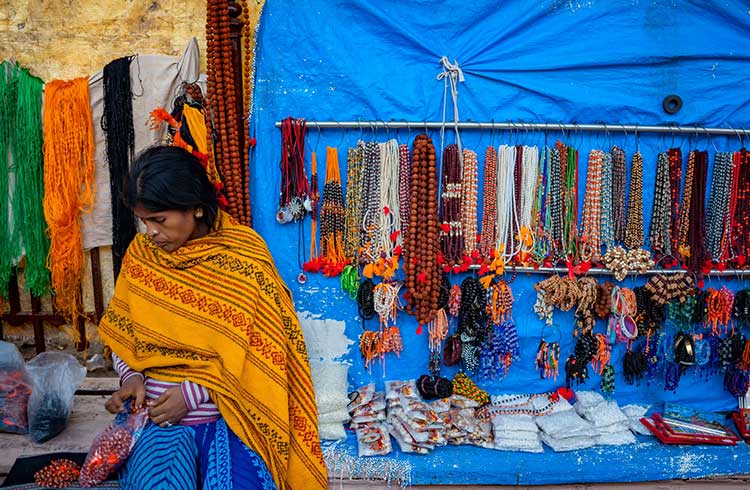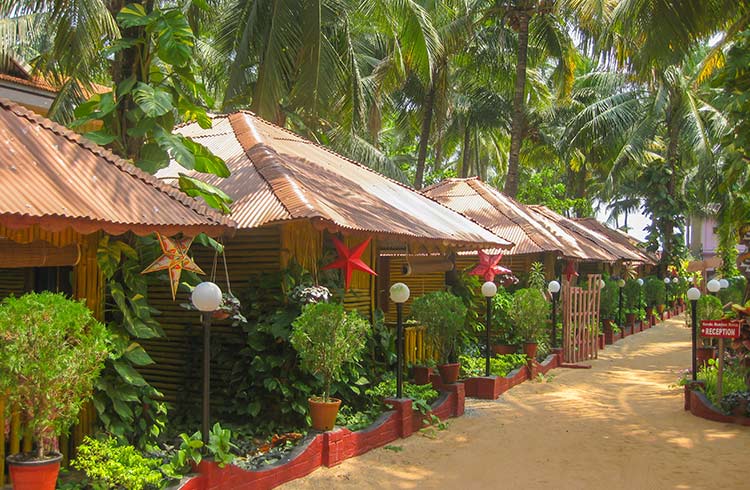Essential Visas & Vaccinations for Your Trip to India
What are the visa requirements for a trip to India? What vaccinations do you really need? Goats on the Road share their tips on visas and vaccinations you need before you go to India.
 Photo © Goats on the Road
Photo © Goats on the Road
India is one of the most exotic and exciting destinations on Earth, but planning your trip will include a few not-so-interesting processes. Here's what you need to do before you set off on your trip to India.
- Visas for travel to India
- Vaccinations for travel to India
- Food and bug-borne illnesses in India
- Don’t worry
Visas for travel to India
We’re not talking credit cards here. Some countries require entry visas to be placed in your passport before you enter.
In India, the visa situation has changed many times over the years, and can seem a bit complicated at first, but once you understand the way it works, it’s actually quite simple.
If you’re from the Maldives, congratulations! You hold the only passport that is allowed to enter India visa-free.
If you’re from Japan, you belong to the only nationality that can get a visa in India upon arrival.
Pretty much all other passport holders will have to get an eVisa to enter India (unless the person is of Pakistani descent).
There are more than 150 countries eligible for eTourist Visa (eTV) in India, including USA, Australia, Canada, New Zealand, UK and many more.
To see a full list of eligible countries, see this list of nationalities who are eligible for eVisa.
The cost of the visa depends on the passport with which you apply, and can vary from US $0-60.
Applying for an eVisa is quite simple, thanks to the Indian Government eVisa Website. Simply click that link, scroll to the bottom of the page and click the “Apply online” button to begin the process.
After filling out the application form, you’ll be prompted to pay online by credit card. Your application will then be processed and, if approved, the eVisa will be sent to your email.
Simply print out the eVisa and present it upon arriving in India.
Vaccinations for travel to India
While I can recommend certain vaccinations here, you should always talk to your local health professional about which shots you may or may not need for visiting specific destinations.
Any information found online should be taken with a grain of salt, as health situations and risks can change in every country depending on outbreaks and the current health state.
Your health professional will be able to give you the most up-to-date information so that you can make the right choice.
At the time of writing, there are no required vaccinations to enter India, aside from Yellow Fever if you’re arriving from countries with risk of Yellow Fever Virus (YFV) transmission, but according to the wwwnc.cdc.gov website, travelers to India should at least have all routine vaccinations, as well as Hepatitis A and Typhoid.
The latter is a real risk in India, as it can be contracted from contaminated water, which is not uncommon in the country.
Other vaccinations to consider include Cholera, Hepatitis B, Japanese Encephalitis, Rabies, and Yellow Fever.
Food and bug-borne illnesses in India
General health risks in India are typically related to food and bug-borne illnesses.

There have been some reports of the Zika Virus in India, so it’s not recommended that pregnant women, or women who plan to become pregnant visit India at this time.
Malaria
There is also some risk of Malaria in the country. From my experience, the best way to avoid malaria is to always sleep under a mosquito net, wear clothing that covers as much as possible, use mosquito repellent, and take Malarone – a daily pill with few side effects that helps your body block the virus from entering your system (check with your healthcare professional before taking Malarone).
Heat exhaustion and sun exposure
Another risk to be aware of is heat exhaustion and sun exposure, as many of us aren’t used to the extreme climates of India.
I myself have suffered severe heat stroke and sunburn in the country. Make sure to wear plenty of sunscreen and stay out of direct sunlight as much as possible.
Always drink plenty of water and consider wetting a scarf or cloth, and placing it on your head if you start to feel like you’re overheating.
My wife and I always carried a few cloths to wet and place on our bodies when on long train journeys with no air conditioning.
Food poisioning in India
In reality, travelers to India are most likely to contract some sort of food poisoning, because the sanitation standards are different in India, as is the types of bacteria found on cooking surfaces and in the water.
Because almost all kitchens in the country will look dirtier than those in western countries, I would recommend avoiding places with messy-looking cooking conditions.

Instead, try to stick to busy places, and only eat during meal times when the turnover is high.
Also, avoid drinking any water that doesn’t come from a sealed bottle. If you decide to have a salad or raw food, don’t eat it if there’s a lot of water on it, or if it looks like it’s been sitting out for a long time.
Try to eat fruit and vegetables that can be peeled, and never drink directly from a can or bottle – try to get a clean straw instead.
Don’t worry
When writing about the “dangers” and “health risks” in India, it always starts to sound like doom and gloom.
But in reality, as long as you drink lots of water, wash your hands frequently, avoid eating when no one else is around, and get your proper shots, you’ll be totally fine.
A bonus tip can be to take probiotic tablets on a daily basis to help boost your body’s ability to fight off germs, and perhaps take Dukoral before departing on your trip to India.
Aside from the tips in this article, just enjoy the experience of India. That may include getting a bit of stomach illness once or twice, but that’s all part of the adventure.
Often, those stories make for the best travel tales when you return home.
Related articles
Simple and flexible travel insurance
You can buy at home or while traveling, and claim online from anywhere in the world. With 150+ adventure activities covered and 24/7 emergency assistance.
Get a quote

No Comments